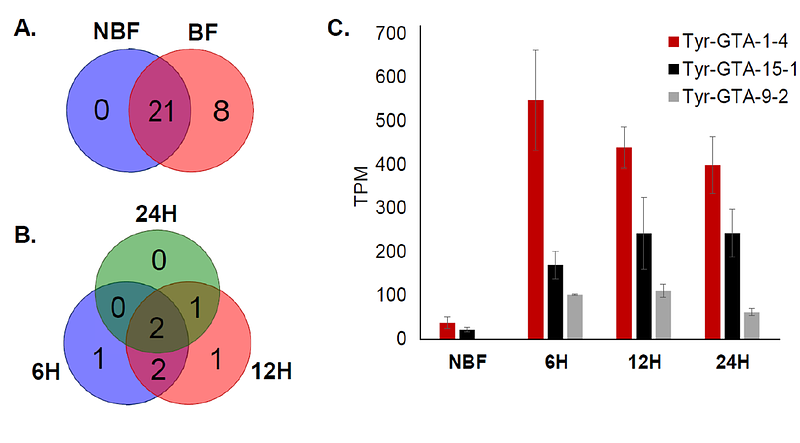Tyrosine transfer RNA levels and modifications during blood-feeding and vitellogenesis in the mosquito, Aedes aegypti

Tyrosine transfer RNA levels and modifications during blood-feeding and vitellogenesis in the mosquito, Aedes aegypti
Kelley, M.; Holmes, C. J.; Herbert, C.; Rayhan, A.; Joves, J.; Frigard, R.; Singh, K.; Limbach, P. A.; Addepalli, B.; Benoit, J. B.
AbstractMosquitoes such as Aedes aegypti must consume a blood meal for the nutrients necessary for egg production. Several transcriptome and proteome changes occur post blood meal that likely corresponds with codon usage alterations. Transfer RNA (tRNA) is the adapter molecule that reads messenger RNA (mRNA) codons to add the appropriate amino acid during protein synthesis. Chemical modifications to tRNA enhance codons\' decoding, improving the accuracy and efficiency of protein synthesis. Here, we examined tRNA modifications and transcripts associated with the blood meal and subsequent periods of vitellogenesis in A. aegypti. More specifically, we assessed tRNA transcript abundance and modification levels in the fat body at critical times post blood-feeding. Based on a combination of alternative codon usage and identification of particular modifications, we identified that increased transcription of tyrosine tRNAs is likely critical during the synthesis of egg yolk proteins in the fat body following a blood meal. Altogether, changes in both the abundance and modification of tRNA are essential factors in the process of vitellogenin production after blood-feeding in mosquitoes.